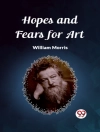Medical Humanity and Inhumanity in the German-Speaking World is the first volume dedicated to exploring the interface of medicine, the human and the humane in the German-speaking lands.
The volume tracks the designation and making through medicine of the human and inhuman, and the humane and inhumane, from the Middle Ages to the present day. Eight individual chapters undertake explorations into ways in which theories and practices of medicine in the German-speaking world have come to define the human, and highlight how such theories and practices have consolidated, or undermined, notions of humane behaviour. Cultural analysis is central to this investigation, foregrounding the reflection, refraction and indeed creation of these theories and practices in literature, life-writing and other discourses and media.
Contributors bring to bear perspectives from literary studies, film studies, critical theory, cultural studies, history, and the history of medicine and psychiatry. Thus, this collection is historical in the most expansive sense, for it debates not only what historical accounts bring to our understanding of this topic. It encompasses too investigation of life-writing, documentary, and theory and literary works to bring to light elusive, paradoxical, underexplored – yet vital – issues in history and culture.
Praise for Medical Humanity and Inhumanity in the German-Speaking World
‘A thought-provoking anthology of essays that are very well related to one another, something that many anthologies lack. The volume (which also includes chapters by Thomas Wilks on novels by Wilhelm Genazino and by Ernest Schonfield on Kerstin Hensel’s novel La¨ rchenau) demonstrates how fruitful collaborations within the medical humanities can be.’ Social History of Medicine
Tabla de materias
Preface
Alena Ledeneva and Peter Zusi
1. Medical In/Humanities: The Human and the Humane in the German-Speaking World. An Introduction
Mererid Puw Davies and Sonu Shamdasani
2. Pain and Laughter: Dental Treatment as a Comic Motif in Medieval and Early Modern Literature
Sebastian Coxon
3. Combat, Military Medicine and Psychiatric Disorders during and after the Wars of Unification
Mark Hewitson
4. From Neurosis to a New Cure of Souls: C.G. Jung’s Remaking of the Psychotherapeutic Patient
Sonu Shamdasani
5. C. G. Jung and the Berneuchen Movement: Meditation and Active Imagination in Jungian Psychotherapy And Protestant Spiritual Practice in the 1930s
Martin Liebscher
6. Humane Horrors: The Dentist in Günter Grass’s örtlich betäubt / Local Anaesthetic (1969)
Mererid Puw Davies
7. Inhuman Institutions: Wilhelm Genazino’s Clinical Treatments
Thomas Wilks
8. Medical Experiments on Humans in Kerstin Hensel’s Lärchenau (2008)
Ernest Schonfield
9. Burnout Therapy, Cool Conduct and Cold Cinema
Annie RingIndex
Sobre el autor
Sonu Shamdasani is Vice-Dean (International) of the Faculty of Arts and Humanities and Co-Director of the UCL Health Humanities Centre. He works on the history of psychology and psychiatry. His research follows two intersecting vertices: the reconstruction of the formation of modern psychological disciplines and therapeutics from the mid-nineteenth century onwards, and a reconstruction of the formation of work of Jung, based on primary archival materials. He has written six monographs and edited six volumes, which have together been translated into more than 20 languages.












